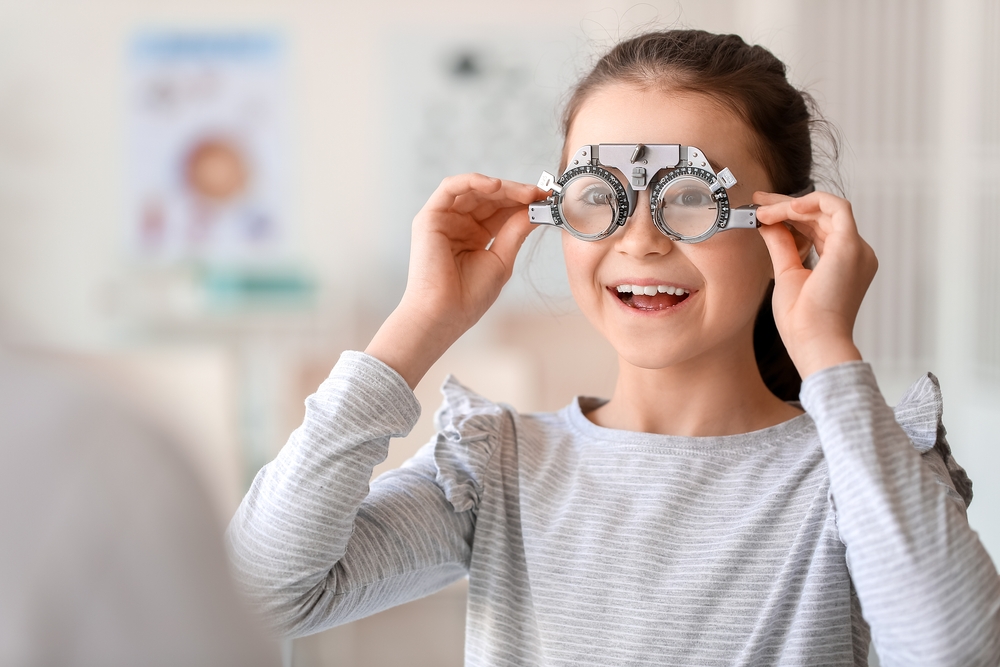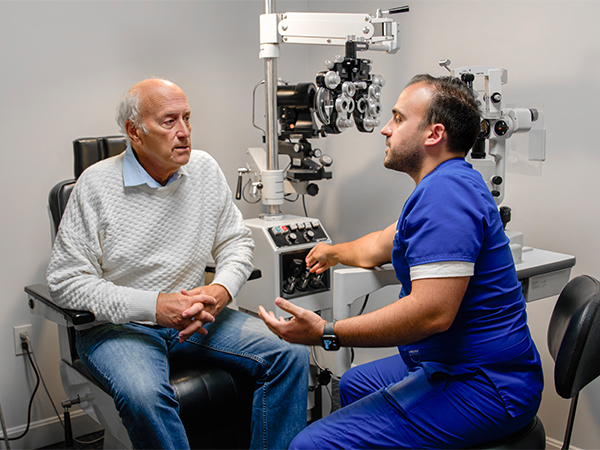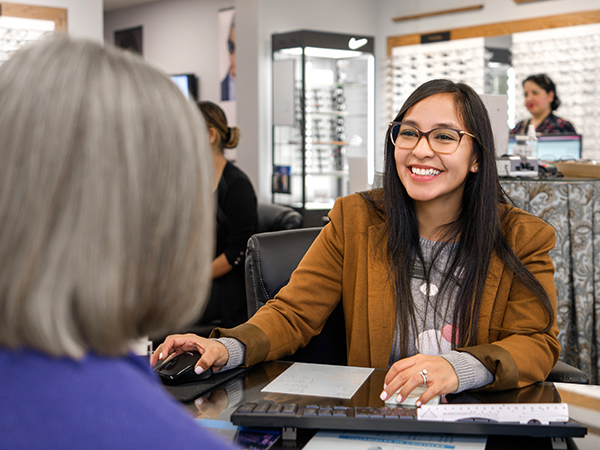
Myopia is one of the most common vision problems affecting children today, and it is becoming increasingly prevalent. While genetics can play a role, modern lifestyles that involve excessive screen time and limited outdoor activity also contribute to its development. Fortunately, there are proactive steps parents can take to help slow the progression of myopia.
Understanding Myopia
Myopia, also known as nearsightedness, is a common vision condition in children where distant objects appear blurry while close-up items remain clear. It typically occurs when the eyeball grows too long or the cornea is too curved, causing light to focus in front of the retina instead of directly on it. Myopia often develops during early school years and tends to progress as a child grows.
Children with myopia may struggle to see the whiteboard at school, have difficulty recognizing faces from a distance, or squint frequently to see clearly. If left unaddressed, myopia can increase the risk of more serious eye conditions later in life, such as retinal detachment, glaucoma, and macular degeneration.
The Importance of Early Detection
Early detection is essential for managing myopia. Pediatric eye exams not only assess your child’s current vision but also monitor for any changes that may indicate worsening myopia. Even if your child doesn’t complain about vision issues, they may be unknowingly adapting to blurry vision - making routine eye exams all the more critical. Identifying myopia early allows our eye doctor to implement appropriate strategies to slow its progression and protect long-term eye health.
Lifestyle Adjustments to Help Prevent Myopia from Worsening
Certain lifestyle changes can play a major role in reducing the risk of myopia progression in children. Here are a few evidence-based adjustments:
Increase Outdoor Time: Studies show that spending at least 2 hours per day outdoors can significantly reduce the risk of myopia progression. Natural light and the opportunity to focus on distant objects help the eyes develop in a healthier way.
Limit Screen Time: Excessive use of tablets, smartphones, and computers can contribute to digital eye strain and myopia development. Encourage regular breaks using the 20-20-20 rule: every 20 minutes, look at something 20 feet away for at least 20 seconds.
Optimize Near Work Habits: Children should avoid reading or doing homework too close to their faces. A recommended distance is at least 12-14 inches away from the eyes. Good lighting and ergonomic seating also help reduce strain.
Create a Balanced Visual Routine: Encourage your child to alternate between near tasks (like reading) and activities that involve looking into the distance. Building healthy visual habits early can prevent unnecessary stress on their developing eyes.
When to Consider Myopia Control Treatment
If your child’s myopia is progressing despite healthy habits, your optometrist may recommend a more structured treatment plan. Options include:
Atropine Eye Drops: Low-dose atropine drops are used nightly and have been shown to slow the elongation of the eyeball, reducing myopia progression.
Multifocal Contact Lenses or Glasses: These lenses help manage how light focuses in the eye, which can slow the progression of myopia while correcting vision.
Orthokeratology (Ortho-K): These custom-designed contact lenses are worn overnight to gently reshape the cornea. In addition to correcting vision during the day without glasses or contacts, Ortho-K can also slow myopia development.
Protect Your Child’s Vision at WeCare Eye Group
Myopia is becoming increasingly common in children, but it doesn’t have to be a lifelong or worsening condition. With regular pediatric eye exams, smart lifestyle choices, and timely intervention, you can help protect your child’s vision and reduce their risk of serious eye health issues later in life.
At WeCare Eye Group, we’re committed to supporting your child’s visual development through every stage. Contact us to schedule a pediatric eye exam and learn more about personalized myopia control options.We’re here to serve you at multiple locations across Pennsylvania and Rhode Island. Contact the office nearest you to book your appointment today:
Ardmore Eye Care - Ardmore, PA | (610) 624-2151
WeCare Eyes and Skin MedSpa - Providence, RI | (401) 331-7850
Cranston Eye and Optical - Cranston, RI | (401) 942-9933
Westminster Eye Care Associates - Providence, RI | (401) 331-7850
Smithfield Eye and Optical - Greenville, RI | (401) 949-7300
College Hill Eye and Optical - Providence, RI | (401) 831-2015
North Providence Eye and Optical - North Providence, RI | (401) 353-2010











